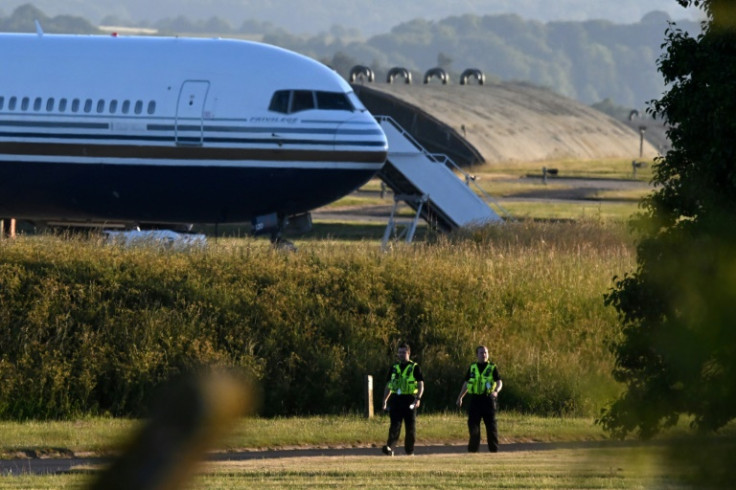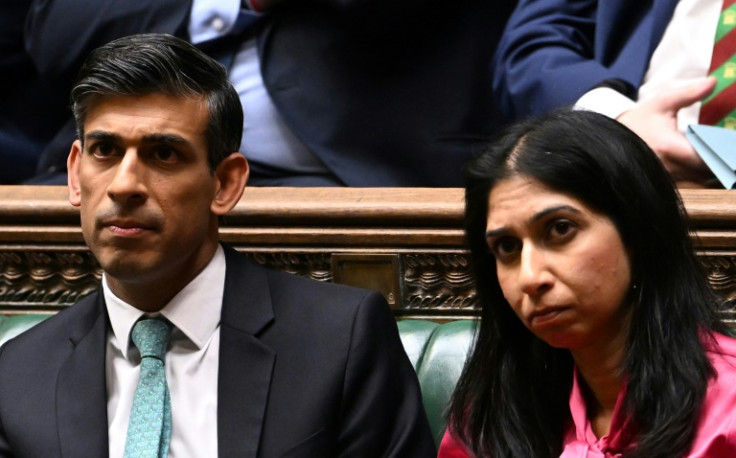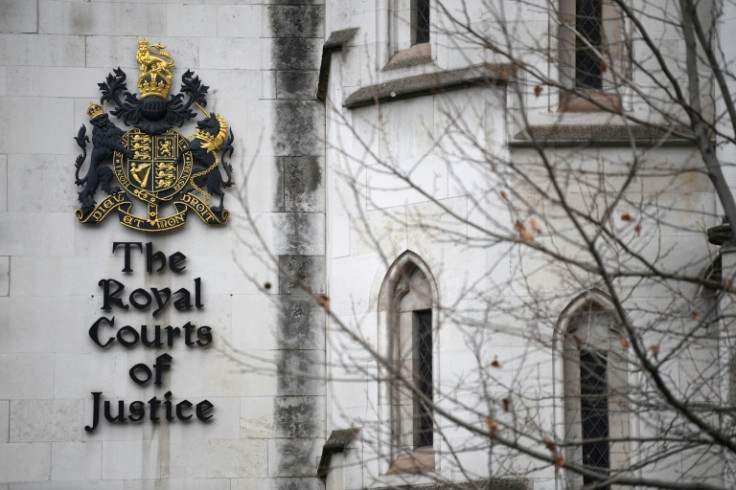UK government to appeal judges' block of Rwanda deportation plan
The UK government said it would challenge a court ruling issued Thursday that blocks its plan to deport asylum seekers to Rwanda, a set-back to its controversial bid to cut migrant numbers.

The UK government said it would challenge a court ruling issued Thursday that blocks its plan to deport asylum seekers to Rwanda, a set-back to its controversial bid to cut migrant numbers.
Three Court of Appeal judges ruled that Rwanda could not be considered a safe third country, after a challenge to the policy by 10 migrants and a charity supporting asylum seekers.
The ruling was welcomed by human rights groups but sparked an indignant response in Kigali, which insisted it met UN standards for the treatment of refugees.
UK Prime Minister Rishi Sunak said he respected the court but "fundamentally" disagreed with the judges' conclusions.
"I strongly believe the Rwandan government has provided the assurances necessary to ensure there is no real risk that asylum-seekers relocated under the Rwanda policy would be wrongly returned to third countries," he said.

"Rwanda is a safe country. The High Court agreed. The (UN refugee agency) UNHCR have their own refugee scheme for Libyan refugees in Rwanda.
"We will now seek permission to appeal this decision to the Supreme Court."
Tackling asylum claims has become a political headache for Sunak's ruling Conservative government in London, which promised to "take back control" of the country's borders after the UK left the EU.
Home Secretary Suella Braverman lashed out at "phoney humanitarianism" standing in the way of ending Channel crossings and said the system was "rigged against the British people".
Former prime minister Boris Johnson brought in the contentious deportation proposal to try to tackle record numbers of migrants crossing the Channel from northern France by small boats.
More than 11,000 people have already crossed the Channel in small boats from northern France this year, while the backlog of asylum claims being processed has reached record levels.
Rights groups and charities protested against the deportation plan, and the first removal flights due to take off last June were successfully blocked by legal action.

Two High Court judges dismissed claims about the legality of the scheme in December last year.
That prompted the 10 asylum seekers -- from Syria, Iraq, Iran, Vietnam, Sudan and Albania, plus the charity Asylum Aid -- to appeal.
At the appeal court, the judges agreed the UK government could not guarantee that asylum seekers sent to Rwanda would not be deported to the country from which they were fleeing.
"The deficiencies in the asylum system in Rwanda are such that there are substantial grounds for believing that there is a real risk that persons sent to Rwanda will be returned to their home countries, where they faced persecution or other inhumane treatment," the judges said.
A majority of judges were not convinced by Rwanda's assurances, saying that although made in good faith the evidence they presented "does not establish that the necessary changes had by then been reliably effected or would have been at the time of the proposed removals.
"In consequence, sending anyone to Rwanda would constitute a breach of article 3 of the European Convention on Human Rights" which states that no one shall be subjected to torture, inhuman or degrading treatment or punishment, they added.
Yasmine Ahmed, UK director of Human Rights Watch, called the verdict "some rare good news in an otherwise bleak landscape for human rights in the UK".
"Rather than treating human beings like cargo it can ship elsewhere, it (the government) should be focusing on ending the hostile environment towards refugees and asylum seekers," she added.
The UNHCR urged the UK government to "pursue other measures, including cooperation with the UK's European neighbours and fair and fast asylum procedures, that would be more humane, efficient and cost-effective".
In Kigali, government spokeswoman Yolande Makolo insisted Rwanda was "one of the safest countries in the world" and said "we have been recognised by the UNHCR and other international institutions for our exemplary treatment of refugees".
"While this is ultimately a decision for the UK's judicial system, we do take issue with the ruling that Rwanda is not a safe country for asylum seekers and refugees," she added.
The deportation scheme applies to anyone deemed to have entered the UK illegally since January 1.
Sunak and Braverman have both said urgent action is needed to break smuggling gangs and to prevent further tragedies in the Channel.
An impact assessment report released this week estimated the plan will cost GBP169,000 ($210,000) per person, but that most of those costs would be recouped by not having to accommodate the claimants.
© Copyright AFP 2025. All rights reserved.





















